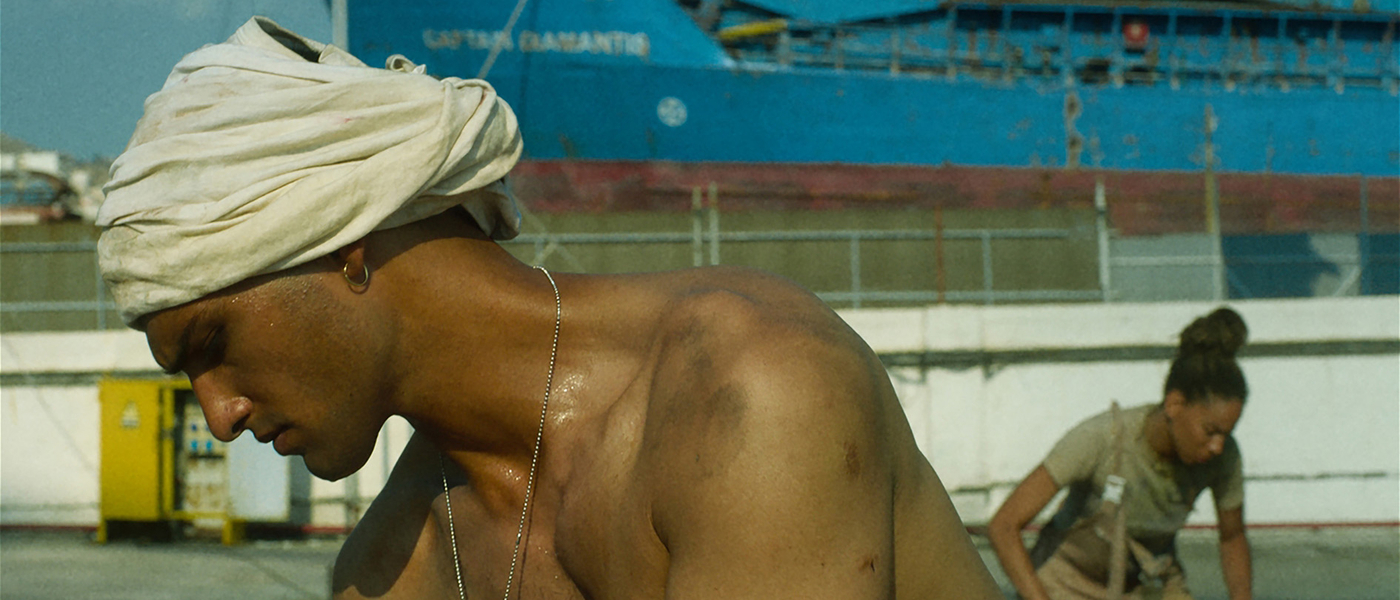About Στον Θρονο Του Ξερξη ( On Xerxes' throne)
by Thomas Fouet

by Thomas Fouet
It is a children’s game (“like we don’t really touch…”), an erotic exercise for grownups (nothing better than a taboo to heat things up), a cinematic dream (the idea that looking would be the same as touching, could have crossed some lonely film buffs’ minds), and a political tale that dares to be both staunchly contemporary, and unrelated to any specific context – a powerful, playful dystopia.
Interview with Evi Kalogiropoulou
“Since I was a kid I liked to watch people work in these shipyards, where a relative of mine was working. The workers inside a big ship were a microcosm to observe. I was staring at them for hours while I was eating chips. I remember finding the way they were working and interacting with each other to be very sensual, erotic even. Each one had their own space on the ship and they hardly communicated with one another. I remember one of them was looking at the others from the top of the ship and he was just smoking for hours, maybe he was the boss.
I could feel a hidden attraction and eroticism in this stereotypical machismo-filled environment. They were moving all together half naked as in a choreography, sometimes they exchanged hidden glances. I was thinking that just one touch would break all the machismo structure and a new working environment would spring up.
There were also women working there, but as cleaners or in different posts. I kept also wondering how it would feel for these women to work on the ship with the guys I was staring at.
The form of the film came to me because I had a certain character in mind, a relative of mine as I said, the brother of my grandfather. He was working at the port of Piraeus. He was a very attractive and old school guy. So, I had him in my mind as the central narrator.
The period of the film shoot at the shipyard coincided with the time of the year that these vessels were getting ready from maintenance and launched back into the water. These were luxury yachts that were ready for the summer season and had to get at sea. So it was a bustling place, changing unpredictably. Surprises were constant, like one morning that the main ship of my set just wasn’t there any more. It was really important for me that some of the real workers from the shipyard appear in the film.”